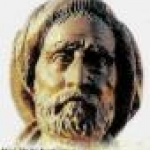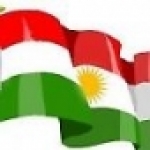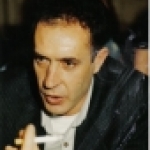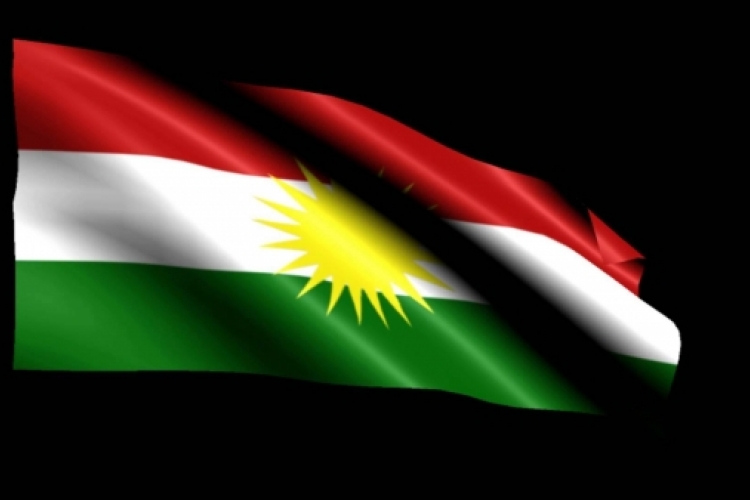bugunku new york times dan
Kurdlerle ilgili kitap tanimi baglaminda aktuel bir makale daha
ilginc iddalar var.
su an tercume icin vaktim yok.
oldukca sadece ilginc bolumleri yaparim
buyrun
By MICHAEL GOLDFARB
Published: August 22, 2008
Sooner or later most foreign correspondents find themselves sent to Kurdistan. This fact has been true for many decades, a testimony to the Kurds' chronic, newsworthy troubles. The journalists assigned there discover that the land and its people get under their skin in a way other places don't.
Skip to next paragraph
INVISIBLE NATION
How the Kurds' Quest for Statehood Is Shaping Iraq and the Middle East
By Quil Lawrence
Illustrated. 366 pp. Walker & Company. $25.95
Related
Times Topics: KurdsThe reasons for all this are varied. There is the historic injustice at the heart of the Kurdish story: as the world's largest ethnic group without a country of their own, they have suffered everything from cultural and economic oppression to genocide. Then, in a region where Western reporters are not liked very much, Kurds are exceptionally friendly. Finally, there is the raw physical beauty of Kurdistan.
Early in “Invisible Nation,“ Quil Lawrence, who has spent much of this decade reporting from Iraq for the BBC/PRI radio program “The World,“ confesses to the power Kurdistan holds on him. The Kurds have clearly worked on his heart, and it shows in the way he tells the story of a people who have made themselves central not just to American plans in Iraq but also in the wider Middle East.
For any author, writing a history of the Kurds presents a challenge, because the Kurdish story has more switchbacks than a shepherd's trail into the mountains. It is filled with alliances, betrayals, unlikely political marriages of convenience, bloody shotgun divorces. This book pretty much tells the reader all of them. But it is structured around the Kurds' relationship with the United States — a relationship with as many twists and turns as the rest, and with the same bloody consequences.
Lawrence goes back to the early 1970s, when Richard Nixon and Henry Kissinger's realpolitik defined America's approach to the world. The great Iraqi Kurdish rebel leader Mustafa Barzani put his people forward to Washington as willing players between Iran's shah and Iraq's Saddam Hussein. But the Kurds never rose above the level of pawns in this game, and when Iran and Iraq reached a rapprochement, America abandoned them to Hussein's not-so-tender mercies.
Lawrence then takes the reader on the bumpy, bloody road leading to the astonishing situation today: a Kurd, Jalal Talabani, is the president of Iraq, and Mustafa Barzani's son Massoud Barzani is president of a Kurdish region that enjoys extraordinary autonomy and wealth. That autonomy has the Kurds' neighbors, Iran and especially Turkey — which has long been fighting with a Kurdish separatist group, the Kurdistan Workers' Party, or P.K.K. — militarily concerned. The Turkish Air Force has attacked P.K.K. bases in northern Iraq several times recently, and there are regular reports of Iran shelling its own Kurdish separatist movement's hideouts inside Iraq.
Kurdish wealth, meanwhile, may prove to be illusory. It is based on the Kurds' controlling the area around the north's oil capital, Kirkuk. Barzani calls Kirkuk the Kurdish Jerusalem, but the city today is a complex and volatile mix of Arabs and Turkmens (ethnic Turks), as well as Kurds. Sporadic violence in the city frequently goes unreported, unless the death toll rises into double digits, because few Western news organizations can afford to cover the place. A final political resolution of the Kirkuk situation was supposed to be reached last year. It wasn't. The risk of igniting ethnic civil war just when Iraq was coming to grips with its sectarian fighting was too great. Recently it was announced that there would be no vote until next year.
This is a journalist's book, long on double-sourced facts and interesting quotations. But Lawrence, whose experience gives him genuine authority on Kurdistan, could have provided more original analysis of the questions that gnaw at the reader. Why in this new era do the Kurds continue to tolerate the corruption and nepotism associated with their leaders? How long will it continue? What does it mean for building true democracy there? Lawrence might also have speculated on the almost irrational hatred of Turks toward Kurds, a powerful negative force in the region.
In the penultimate chapter, Lawrence returns to the theme of American fidelity to the Kurds. He asks Hoshyar Darbandi, a Kurd who has recently returned home from a comfortable exile in Sweden, if he fears Turkish or Arab interference in Kurdistan. No, Darbandi tells him. “It's promises from the U.S. that scare me.“
Darbandi's fears are justified. Emanations from some conservative Washington research groups indicate the Bush administration is changing its attitude toward the Kurds. The question is being asked, Are the Kurds good allies? The answers suggest the administration is starting to think no, they are not. What Quil Lawrence's book teaches us is that when the American endgame in Iraq starts to play out, the Kurds will be stuck in the middle of the changes. And another generation of foreign correspondents will have the sad opportunity to report from and fall in love with the place.
Michael Goldfarb is the author of “Ahmad's War, Ahmad's Peace: Surviving Under Saddam, Dying in the New Iraq.“








Degerli HeK